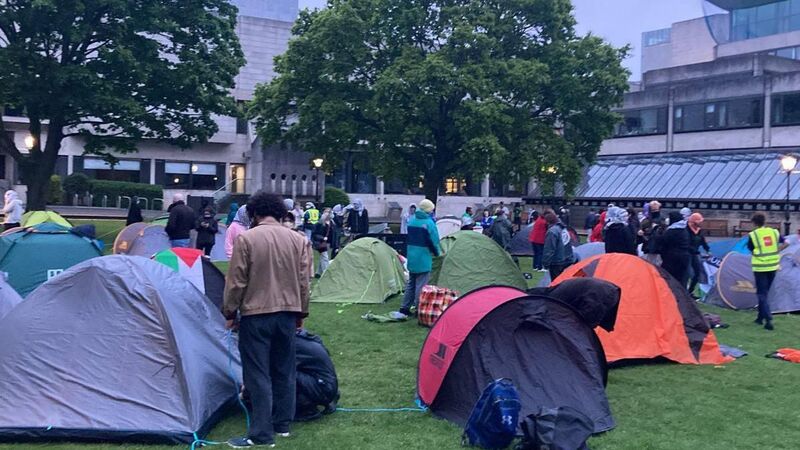Sarah Harte: Right to peaceful protest can’t be at a cost to human rights of others

Dozens of students have set up an encampment on the grounds of Trinity College Dublin to pressurise the college authorities to cut ties with Israel due to its actions in Gaza. Picture: @TCDSU_President/Twitter















